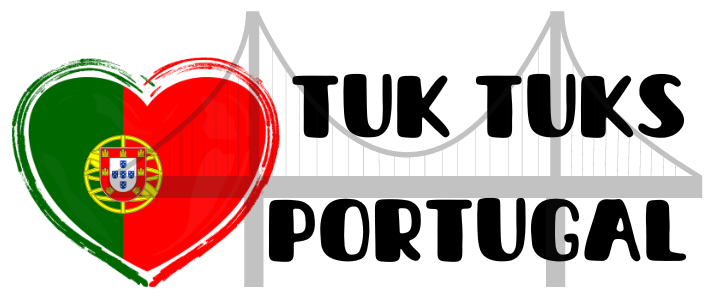Coimbra’s Fado music scene is a rich and unique cultural heritage that dates back to the 19th century. This genre of music is characterized by its melancholic and soulful melodies, sung with heartfelt emotion by male performers accompanied by Portuguese guitar and classical guitar.
Coimbra’s Fado Music Scene: A Melodic Heritage
Coimbra’s Fado Music Scene: A Melodic Heritage is a rich and vibrant tradition that has been passed down for generations in the historic city of Coimbra, Portugal. This style of fado music is unique to the city, characterized by its melancholic and romantic themes, and the use of traditional instruments such as the guitarra and the viola.
The Origins of Coimbra’s Fado Music
Coimbra’s Fado music has its roots in the city’s academic traditions. The music was first introduced by Coimbra University students in the early 20th century and became an integral part of the city’s cultural heritage. The music’s distinct style and lyrics reflect the experiences and emotions of the students, who were often far from home and loved ones.
Fado and Portuguese History
Fado music is deeply rooted in Portuguese history and culture, with its origins dating back to the 19th century. The melancholic melodies and lyrics of Fado often revolve around themes of love, loss, and longing. It was initially popularized in the cities of Lisbon and Coimbra, where it became an integral part of the local culture.
Student Life and the Birth of Coimbra’s Fado
Coimbra’s Fado music scene is intrinsically linked to the city’s student life. The University of Coimbra, one of the oldest universities in Europe, has been a hub of education and culture since the 13th century.
Artists and Figures of Coimbra’s Fado Scene
Coimbra’s Fado scene has produced many talented artists and figures over the years. One of the most renowned figures is Edmundo Bettencourt, who is considered the father of modern Coimbra Fado. Other notable artists include António Portugal, who was known for his melancholic and emotional performances, and Manuel Fernandes, who was a prolific composer and performer.
Pioneers of Coimbra’s Fado Music
Coimbra’s Fado music scene owes its origin to the pioneering efforts of a few distinguished musicians who dedicated their lives to the preservation and promotion of this unique genre. Names like Antonio Portugal, Edmundo Bettencourt, Artur Paredes, and Fernando Machado Soares are synonymous with the birth of Coimbra’s Fado and its subsequent evolution.
Modern Influences and Performers
Modern influences and performers have brought a new wave of creativity to Coimbra’s Fado music scene. The genre has evolved with the incorporation of new instruments, such as the guitar and piano, and the fusion of other musical styles like jazz and bossa nova.
Popular Coimbra Fado Venues and Festivals
Coimbra is home to several popular venues and festivals that celebrate its rich Fado music heritage. One of the most famous venues is the Fado ao Centro cultural center, which offers daily Fado performances by local artists. Other popular venues include the Café Santa Cruz and the Quebra Costas, which both offer a unique and intimate setting for Fado performances.
Historic Fado Houses in Coimbra
Coimbra’s historic Fado houses are an integral part of the city’s cultural heritage. These venues were instrumental in the development and preservation of Coimbra’s Fado music scene. The Fado houses, such as the famous Café Santa Cruz, have been serving as gathering places for musicians and Fado lovers since the early 20th century.
Annual Fado Festivals and Celebrations
Annual Fado Festivals and Celebrations are an integral part of Coimbra’s rich cultural heritage. These festivals showcase the best of traditional and contemporary Fado music, attracting musicians and enthusiasts from all over the world. The most famous festival is the Festa das Latas, which celebrates the start of the academic year.
The Influence of Coimbra’s Fado on Portuguese Culture
The influence of Coimbra’s Fado on Portuguese culture is undeniable. As a music genre that is deeply rooted in Portuguese history and tradition, Coimbra’s Fado has become a symbol of the country’s cultural identity. Its melancholic and poetic melodies have inspired generations of Portuguese artists and writers, and its lyrics have often served as a reflection of the country’s social and political struggles.
Fado as a UNESCO Intangible Cultural Heritage
Fado, the soulful and nostalgic musical genre of Portugal, has been recognized as an Intangible Cultural Heritage by UNESCO. This prestigious designation acknowledges the significance of fado in Portuguese culture and its importance in preserving the country’s cultural identity. Coimbra, a city renowned for its fado music scene, has played a vital role in the development and evolution of this musical genre.
Coimbra’s Fado in the Global Musical Landscape
Coimbra’s Fado music scene, with its rich history and cultural significance, has gained recognition in the global musical landscape. As a UNESCO Intangible Cultural Heritage, Coimbra’s Fado has become a symbol of Portuguese identity and a popular tourist attraction.
